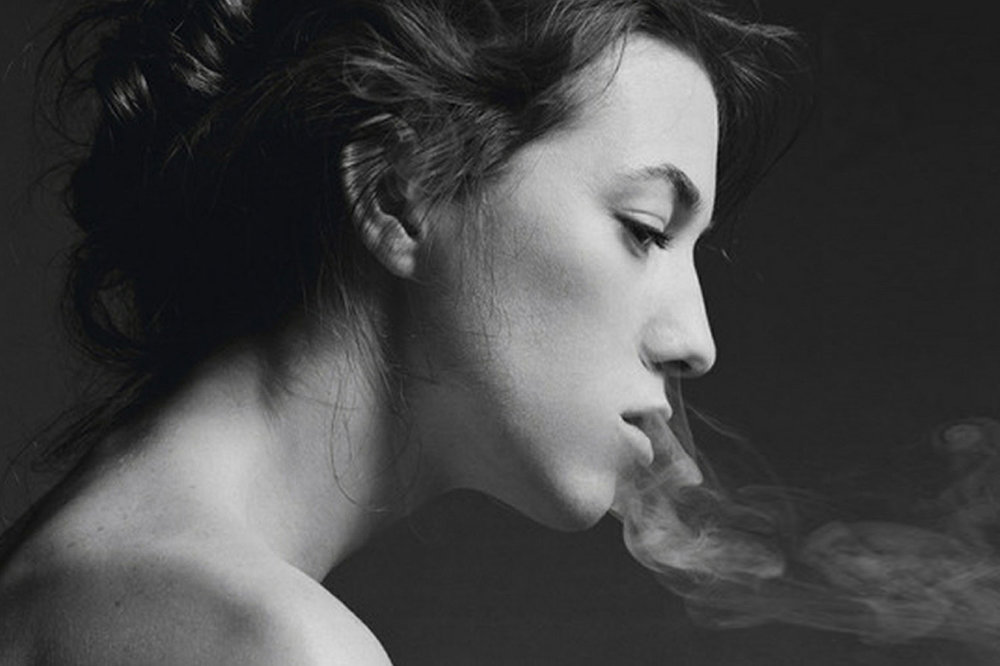Smoke & Mirrors
For centuries, French women have been touted as femmes fatales, allegedly the keepers of a certain ‘je ne sais quoi’. But does the stereotype still ring true today? Daniela Aroche takes the plunge into Paris to find out.
T he strange thing about woman – her pre-ordained fate – is that she is simultaneously the sin and the Hell that punishes it.
So mused French poet Charles Pierre Baudelaire sometime around the 1800s, articulately encapsulating the essence of the femme fatale – a term which, coined in France, literally means a ‘deadly woman’ who lures and manipulates men through sex and feminine guile.
Historically, the femme fatale has taken many forms and emerged from various cultures, but these days, the archetype has returned to its Gallic origin, and the women of France’s capital are now viewed worldwide as its modern embodiment.
Les Parisiennes – as proven by books such as ‘French women don’t get fat’, ‘Fatale: How French women do it’, and ‘What French women know: About love, sex and other matters of the heart and mind’ – have become a symbol of the ideal woman – sexual, stylish, passionate and liberated.
Yet, according to native Parisian Olivier Magny – author of the blog turned novel ‘Stuff Parisians Like’ – French women are none of these things, and he is as perplexed as foreigners seem to be, about the source of their alleged irresistible allure, as well as why this stereotype persists.
Magny, who also runs popular wine bar Ô Chateau in the first arrondissement of Paris, used his post and daily interaction with the French société to begin the ‘Stuff Parisians Like’ blog in 2008.
The blog, throughout which he analysed the psyche and customs of his countrymen (and women), may have deemed him traitor to his own race, but served the purpose of spilling the secrets behind, what he says, are misconstrued myths about the French – including the femme fatale title bestowed on his female counterparts.
“I suppose the inspiration behind my blog has to do with all the gibberish I heard on a daily basis about Paris life. Between foreigners who idolise anything Paris and provinciaux who loathe it, I felt everyone was missing the essence of what Paris truly was,” he says.
“In particular, I think the myth of the femme fatale is a bit like that of the joie de vivre. It is the reminiscence of something that is no longer.”
““The myth of the femme fatale is a bit like that of the joie de vivre. It is the reminiscence of something that is no longer.””
Interestingly, Magny’s comments echo that of well-known journalist Bertrand de Saint-Vincent, writer for Le Figaro and author of ‘Tout Paris’, who once said: “It’s the fantasy of the entire world of women, even French women, to be the perfect Parisienne,”; suggesting this vision of the French femme fatale is not only a myth, but also that French women themselves strive to live up to the stereotype.
This perhaps, goes some way towards explaining why French women in particular seem to pay more attention to their appearance, and in doing so, at least convey the image of the impossibly chic femme fatale.
However, it also casts some serious doubt over the perception that French women are simply born stylish because of their background.
Yet, whatever the truth, there’s no denying they do look the part, admits designer Collette Dinnigan.
As the only Australian member of the Chambre Syndicale du Prêt-à-Porter des Couturiers et des Créateurs de Mode, Dinnigan regularly spends a significant amount of time in Paris, and has observed French style first-hand via the prestigious Paris Fashion Week schedule.
“What makes French style unique is it can take your breath away,” she says.
“The attention to detail, cut and execution are extraordinary. The French, with all this, still manage to keep the romance and don’t forget the woman at heart. Parisian women live in a world dominated with style and fashion and their grooming is impeccable. They [Parisian women] really dress for the occasion, whereas Western women tend to favour comfort and casual dressing.”
Magny, for his part, concedes this may be true, however, he argues that this fixation on maintaining the perfect exterior has also contributed to some deep-seated insecurities in French women, which have stripped many down to little more than an attractive shell, rather than femmes fatales with substance.
“Probably, I would say Parisiennes on average dress more elegantly than provinciales, but there is in this idea of femme fatale the desire to seduce. Seduction, in that it is somehow playful and light-hearted, is not something that belongs in today’s French women’s matrix unfortunately. They are too busy blending in,” he says.
Bronwyn Winter, an associate professor for the department of French studies at the University of Sydney, agrees with Magny in that French women, even the famed Parisiennes, hold no specific allure over that of women from other cultures.
What they do have, however, is a rich history – which includes that of the courtesans in the 16th century – and it’s a safe bet that this is where the femme fatale stereotype was born.
“It is a stereotype, but like all stereotypes, it surely has some historically and geographically situated grain of truth at its origin,” Winter says.
“It could have some connection to the sorry history of French sexism, in which women have been perhaps more enduringly objectified than in some other parts of the West, or to the history of prostitution and Anglo-world mythicising of fin-de-siècle Paris.”
Filtering into a more modern age, the stereotype continued to flourish with the ‘Hollwoodisation’ of Paris in the US cinema industry and the emergence of film noir, followed by the association of France with the high-end of the fashion industry.
But in addition, Winter says it’s probably clever marketing and leveraging the mystery of a foreign country and its inhabitants which has kept the femme fatale stereotype of French women alive – and saleable.
““France’s reality these days is not a pretty one to look at if you’re trying to be honest.””
“The cultural perpetuation of ‘femininity’ as a means of keeping women in a subordinate position depends on the fabrication of dreams and ideals, usually difficult or even impossible to live up to,” she says.
“Claims to expertise on ‘Frenchness’ or vicarious French female identity, are usually made by white, middle-class Anglo women who no doubt have been changed by their experience of living in France, but who are basically, like other lifestyle or self-help authors, interested in writing and selling lifestyle or self-help books
“They also know that the ‘exotic’, especially when coupled with upwardly-mobile aspirations that usually characterise dreams of ‘Frenchness’, can be packaged and sold.”
Magny agrees and adds: “They have no concept of the reality of what France truly is or has become. And I would say they are not necessarily interested. So they elaborate on myths that are long gone.
“Other non-French, middle-aged ladies around the world read their books and the myth persists. But France’s reality these days is not a pretty one to look at if you’re trying to be honest.”
So, perhaps the femme fatale perception in this age is an illusion, albeit one that French women have managed to mirror perfectly,
on the outside at least. But as Baudelaire again sums up eloquently: “All which is beautiful and noble is the result of reason and calculation”.
Sounds like the mark of a modern-age femme fatale to me.
By / Daniela Aroche





